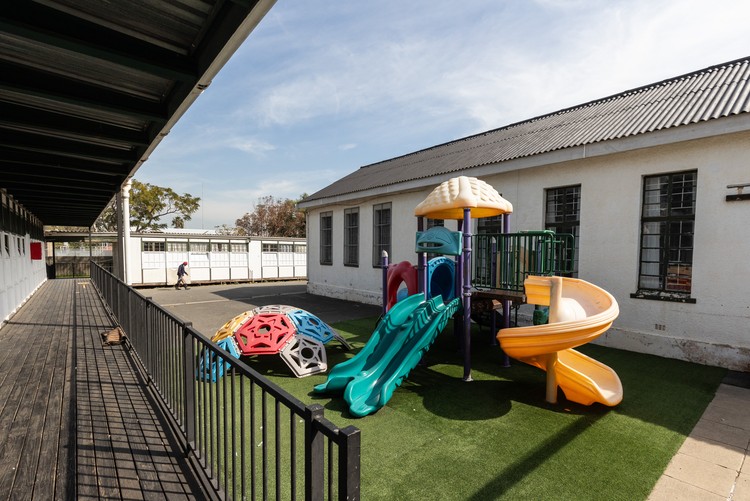Gauteng’s shelter system is “broken” because of state incompetence
Several gender-based violence shelters in the province were forced to close because of uncertainty over their funding from the Department of Social Development
The recent funding cuts by the Department of Social Development in Gauteng have disrupted how abused women and children access much-needed services and shelter. Archive photo: Ashraf Hendricks
- Several gender-based violence shelters in Gauteng have been forced to close their doors in recent months as a result of the subsidies from the department not being paid.
- There has also been uncertainty over whether the shelters would receive any funds this financial year.
- People Opposing Women Abuse was among several organisation forced to close their shelters in Gauteng.
- There is chatter in the sector about plans by the department to take over shelter services but we are yet to see any evidence of how it will execute such critical work.
Funding cuts from the Gauteng Department of Social Development (DSD) to non-profit organisations are disrupting how many vulnerable people, particularly abused women, access much-needed services and shelter.
“This funding crisis has broken the referral system in Gauteng. As shelters, we work together. When I don’t have space, I refer a woman to another shelter that has space. Now, with so many shelters closing down, we are running out of places to send women,” said Thoko Budaza, Executive Director of People Opposing Women Abuse (POWA).
POWA had to close its Gauteng shelters in April. It could accommodate over 150 women and their children.
Other shelters have also been forced to close their doors in recent months because subsidies from the department have not being paid. There remains uncertainty over whether the shelters will receive any funds from the department for this financial year.
According to a report by the Commission for Gender Equality, there were 21 shelters in Gauteng in 2022/23, and only two had family units to accommodate women and their children. POWA’s shelters were among the few shelters in the province that allowed women to bring their children with them.
In a document shared by the department earlier this year, titled Gauteng Shelters of Gender Based Violence and Crime, there are 17 shelters listed, with only one in Johannesburg. At least two of the shelters have since closed owing to uncertainties over funding allocations.
“We have heard that DSD wants to take over sheltering services from non-profit organisations but they have not engaged us. … We don’t know what their plans are and how they are going to assist women in need,” said Budaza.
“While we wait to hear what DSD’s plans are, women are being abused, losing their lives and we are struggling to help them.”
POWA’s other services have also been affected by the funding cuts after the organisation had to retrench 74 staff.
A former employee at another shelter that recently closed in the inner city told GroundUp she receives calls daily from women in abusive situations, looking for a place at the shelter.
“I’ve had to house some women during this time because there were no other options for them,” she said.
Cheryl Hlabane, operations manager at the Frida Hartley Shelter, said, “As shelters, we may have similar objectives but not all have the same criteria for who we can accommodate. You have shelters that don’t have space for children so they only accept women, shelters that can’t accommodate people with disabilities, and shelters like ours where we don’t have a midwife so we can’t accommodate pregnant women.”
Hlabane said the referral system was useful for such instances but lately she is struggling to find places for women who cannot be accommodated at Frida Hartley.
“Every day, we get almost 50 calls,” said Hlabane. She said just over half the people meet their criteria “and the rest are people we can’t assist”.
“Recently, women have called us back, after we’ve referred them to a shelter, to say that when they arrived at the shelter it was empty and not operating,” said Hlabane.
Questions sent to the department’s director for social crime and victim empowerment, Pearl Moabelo, on 23 April are yet to be answered despite follow-up calls and emails. Moabelo then said she forwarded our questions to the department’s communications director Motsamai Motlhaolwa, who acknowledged receipt on 29 April, but did not say when he would respond.
Next: In photos: First Thursday in Mitchells Plain
Previous: President tells ministers to set up task team on use of public land for housing
© 2024 GroundUp. This article is licensed under a Creative Commons Attribution-NoDerivatives 4.0 International License.
You may republish this article, so long as you credit the authors and GroundUp, and do not change the text. Please include a link back to the original article.
We put an invisible pixel in the article so that we can count traffic to republishers. All analytics tools are solely on our servers. We do not give our logs to any third party. Logs are deleted after two weeks. We do not use any IP address identifying information except to count regional traffic. We are solely interested in counting hits, not tracking users. If you republish, please do not delete the invisible pixel.



